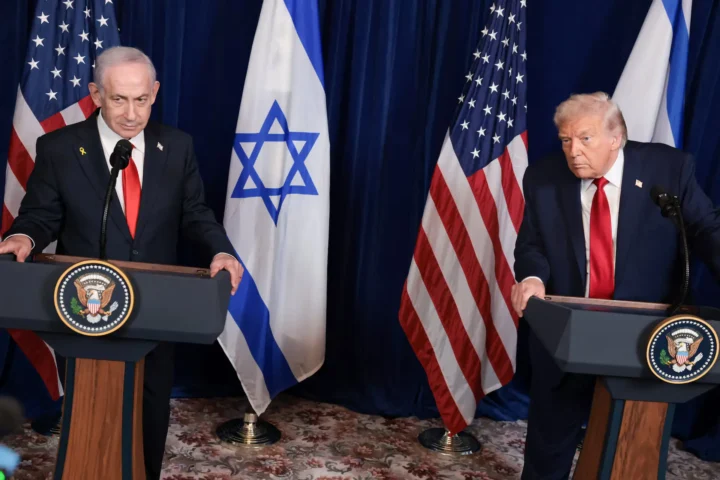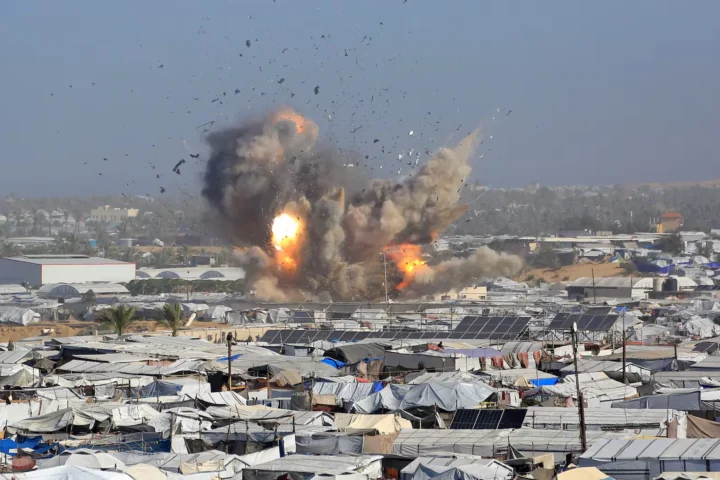As tensions escalate in the Middle East, concerns over Iran’s nuclear ambitions are once again dominating international headlines. The potential for a nuclear-armed Iran poses a complex and volatile challenge to regional stability and global security, with experts warning of far-reaching consequences.
Heightened Risks and Regional Implications
A nuclear-armed Iran would represent an existential threat to Israel, a long-time adversary, and could trigger a dangerous miscalculation leading to a nuclear exchange, according to analysts. While some argue that Iran would face assured destruction if it launched a strike against Israel—a nation believed to possess its own undeclared nuclear arsenal—the potential for escalation remains a grave concern.
The stakes were underscored by a historic exchange of military strikes in 2024 between Iran and Israel. In October, Israel launched its largest-ever attack on Iran, targeting air defenses and missile facilities, following an unprecedented Iranian ballistic missile strike. Amid this backdrop, Donald Trump’s re-election as U.S. president has reignited discussions about the future of nuclear diplomacy with Iran.
Iran’s Nuclear Progress
While Iran insists its nuclear program is for peaceful purposes, its history of secret nuclear research raises doubts among Western powers. Despite not yet possessing a nuclear weapon, analysts warn that Iran has the capacity to produce fissile material for a bomb within weeks. However, manufacturing a deployable weapon could take significantly longer.
Following the U.S. withdrawal from the 2015 Iran nuclear deal under President Trump, Tehran ramped up its enrichment activities and reduced international oversight, sparking fresh concerns about its nuclear trajectory. By 2024, U.S. Secretary of State Antony Blinken warned that Iran was closer than ever to crossing the nuclear threshold.
Missile Capabilities and Military Posturing
Iran’s missile arsenal—widely regarded as the largest in the Middle East—further complicates the security calculus. Its longest-range missiles can strike targets over 2,000 kilometers away, threatening not only Israel but parts of Europe as well. In 2024, Iran demonstrated its ability to target Israeli sites directly, heightening fears of larger and more devastating attacks in the future.
Despite advances in defensive systems, U.S. and Israeli officials admit that some Iranian projectiles breached defenses during recent strikes, underscoring the persistent risks of escalation.
Regional Fallout of a Nuclear-Armed Iran
Experts warn that Iran’s acquisition of nuclear weapons could trigger a cascade of destabilizing effects. Emboldened by its nuclear status, Iran might adopt a more aggressive posture, leveraging its partnerships with Russia and China to counterbalance U.S. influence. Already, Tehran has supplied Moscow with drones and missiles for use in Ukraine, further entrenching its global alliances.
A nuclear Iran could also spark an arms race in the Middle East, with Saudi Arabia signaling its intent to pursue nuclear weapons if Tehran crosses the threshold. “If they get one, we have to get one,” Saudi Crown Prince Mohammed bin Salman stated in 2023, reflecting the high stakes for regional security.
Uncertain Path Forward
Despite growing international pressure, Iran remains defiant, while signaling some willingness to engage with the newly re-elected Trump administration on nuclear diplomacy. In late 2024, the International Atomic Energy Agency censured Iran for failing to cooperate with inspections, setting the stage for potential renewed sanctions in 2025.
With tensions running high, the question of how to prevent Iran from acquiring nuclear weapons looms large. For now, the region braces for what could be a decisive turning point in its modern history.











